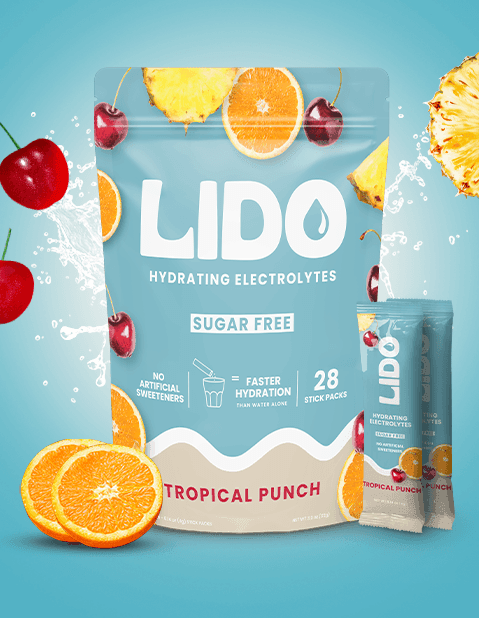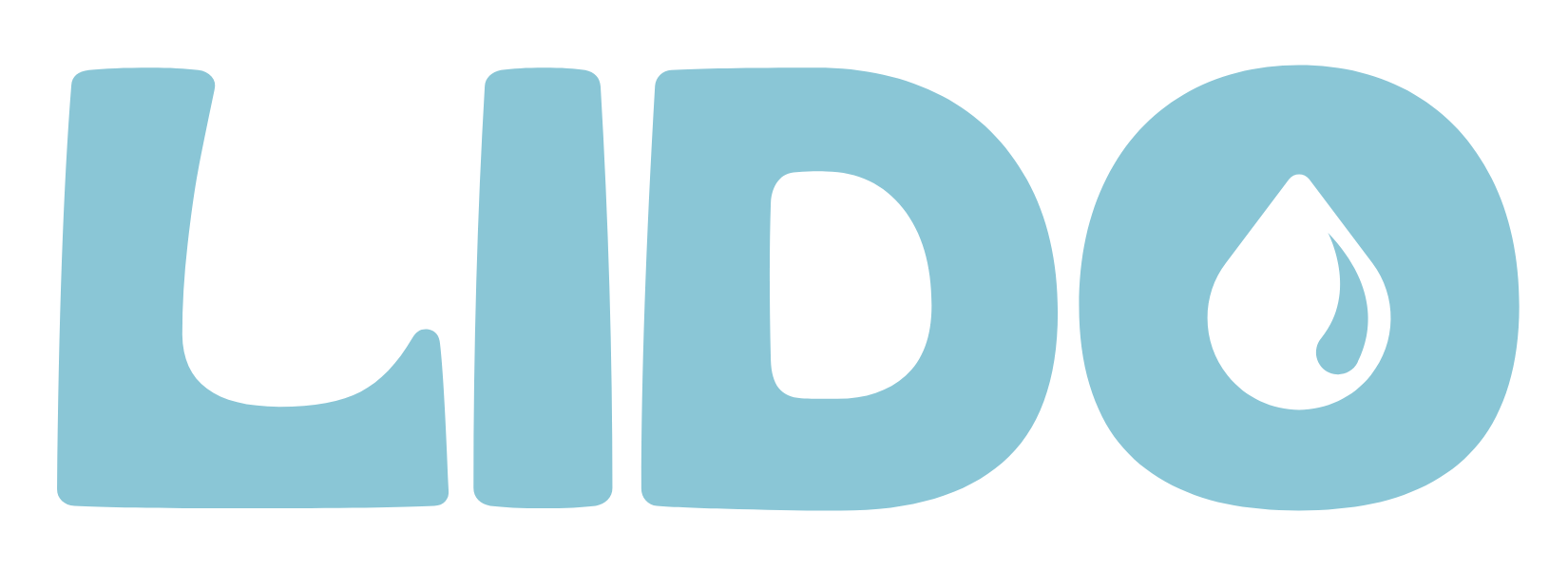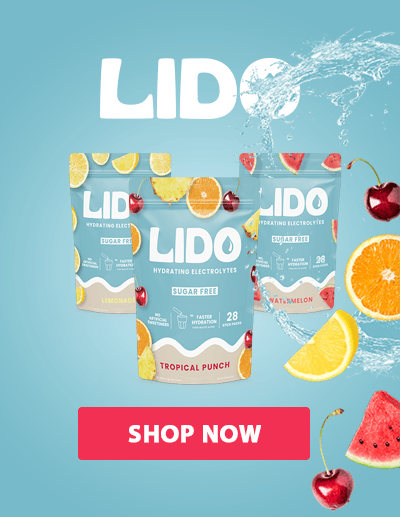Electrolytes: The Secret to a Healthier Pregnancy?
Jennifer DouglasShare

Pregnancy is a journey filled with many remarkable transformations. But as your body changes to support your unborn bub, one thing becomes even more important: staying hydrated.
Like many expectant moms, you might think proper hydration is simply drinking enough water. While it’s a good first step, there’s quite a bit more to it, like replenishing your electrolytes on the reg, especially now that you’re nurturing a new life (or lives if you’re expecting twins, triplets, or quadruplets).
Nutrition-wise, electrolytes are just as beneficial to your health as macronutrients but don’t get half the attention and praise they deserve. So, let’s shed some light on these hydrating substances–what they are, why you need more of them when you’re expecting, and some helpful tips to ensure you get enough for a happier and healthier pregnancy.
What are Electrolytes, and What Do They Do?
In a nutshell, electrolytes are minerals and ions, such as sodium, chloride, magnesium, calcium, and potassium, that act like little rechargeable batteries to help “power” many essential processes in the body.
As “electro” implies, electrolytes carry an electrical charge and can conduct electricity when dissolved in liquids. Our cells use this energy to facilitate hundreds of chemical reactions in the body, from keeping us hydrated (especially when we’re active) to supporting and regulating nerve, brain, heart, and muscle function.
Beyond that, these nutrients help convert food into energy and relieve those pesky headaches and cramps. And did we mention they are an absolute must-have for more restful sleep and a more positive mood?
Why Are Electrolytes Important, Especially During Pregnancy?
As you probably know, pregnancy depletes many of the fluids you need to keep healthy, hydrated, and energized. Between supporting the developing fetus, vomiting (if you have morning sickness), and all those trips to the ladies’ room, your body loses more water and electrolytes as an expectant mom. Plus, if you’re not careful, food restrictions from allergies might lower your fluid and electrolyte intake even further.
Unfortunately, this ongoing loss of fluid and electrolytes raises your risk of dehydration, possibly harming you and your baby’s health if you don’t replenish them regularly. The good news is that electrolytes can help prevent this and ensure a smoother pregnancy.
That said, here’s why getting more electrolytes is crucial during pregnancy:
- It keeps you hydrated. Proper hydration is essential, especially when drinking for two or more. However, if your electrolyte levels dip too low, you may experience a bunch of complications, including preterm contractions, premature delivery, or decreased placental blood flow, according to Iowa Clinic. You may also develop oligohydramnios, a condition where your amniotic fluid volume is too low. This condition is linked to miscarriage, preterm birth, and even stillbirth. With a good electrolyte ratio, however, more water can enter your bloodstream to rehydrate your cells and keep you hydrated, thus minimizing the risk of these and other dehydration-related issues.
- It supports blood volume expansion. As early as the first trimester, your blood volume increasesto supply nutrients and oxygen to the developing fetus, reaching as much as 50% afterward. This increased fluid volume means you need more electrolytes to help the cells carry the extra oxygen taken up in pregnancy, cope with the significant increase in blood flow to your organs, and deliver nutrientsto your growing baby.
- It helps maintain a healthy amniotic sac. As your little one grows and your uterus enlarges, amniotic fluid (containing roughly 98% water and electrolytes) builds up in the uterus. There, it helps cushion the baby, maintain an appropriate temperature, improve nutrient delivery, support the development of their different body systems, etc. However, for your cells and organs to be adequatelyhydrated and move vital nutrients to wherever they’re needed, chemical reactions must occur—and electrolytes are necessary for this to happen.
- It lowers your risk of a bunch of nasty pregnancy complications. Getting enoughelectrolytes helps prevent problems like hyperemesis gravidarum (excessive nausea or vomiting) and preeclampsia and provides much-needed relief from muscle cramps, swelling, fatigue, nausea, and other pregnancy discomforts.
- It aids fetal development. Electrolytes also play a vital role in your baby’s development. Calcium helps build strong bones and teeth. Sodium, potassium, and chloride regulate your child’s fluid levels, nerve signals, and muscle movement in the womb. Deficiencies in any of these nutrients can stunt growth and brain development.
Simply put, electrolytes are our body’s powerhouses. If you’re drinking plain water to stay hydrated, you’ll miss out on the tremendous nutritional boost they provide, possibly impacting your quality of life and, tragically, the health of your precious little one.
Which Electrolytes Should I Supplement Throughout Pregnancy?
While electrolytes are vital at every stage of life, you need more when you’re expecting. However, there are a few “Superstar” electrolytes that are especially beneficial for pregnant moms, including the following:
Sodium and Chloride
Sodium and chloride, which make up the substance we know as salt, help maintain a good electrolyte balance and healthy plasma volume in your bloodstream. They also help your heart function as it should and ensure your muscles and nerves work properly.
And if you don’t get enough sodium when you’re pregnant? Research reveals this could lead to low birth weight or underdeveloped organs in babies. A low-salt diet at critical stages during development may even affect the fetus’ hormonal, vascular, and renal systems.
Signs of low salt intake: You’ll know your body’s low on sodium when you experience symptoms, including swelling, confusion, irritability, nausea, low energy, fatigue, and headache. You may also have an unexplained loss of appetite, muscle weakness, spasms, or cramps.
How to increase your sodium intake: Processed foods are high in salt, so it’s best to obtain sodium by sprinkling more sea salt on your food or from miso, olives, pickles, cheese, cured meats, and fermented foods. Other lacto-fermented vegetables, like sauerkraut or kimchi, are excellent sources of sodium.
Potassium
Potassium works together with sodium to keep fluids stable. As your sodium levels increase, so should your potassium intake. Why? Because a good balance helps lower blood pressure levels, reduces the frequency of severe preeclampsia, causes less kidney damage, and improves perinatal outcomes (preterm birth and low birth weight). Potassium is also essential for fetal growth and development and insulin sensitivity.
Signs of low potassium intake: A deficiency in potassium increases the risk of muscle weakness and cramps, fatigue, abnormal heart rhythms (arrhythmias), constipation, mood changes, high blood pressure, frequent thirst and urination, among others.
How to increase your potassium levels: Focus on fitting in potassium-rich foods like beans (lima, kidney, black beans), avocados, salmon, ham, bacon, sun-dried tomatoes, potatoes, leafy greens, and bananas. Coconut water is a natural way to up your levels, though you can add a small amount of cream of tartar powder to your beverages or electrolyte drinks!
Calcium
Calcium is the most abundant mineral in the body, so you can imagine the potential effects of not having enough. Calcium does more than build strong bones and teeth. It also helps improve muscle and nerve function, clot the blood, manage heart rhythm, and boost enzyme and hormone activity. A high enough calcium level in the body over a lifetime can also help prevent osteoporosis.
Although you won’t need more calcium simply because you’re pregnant, you absorb it twice as fast. That means you’ll take in more from what you’re already consuming—though you’ll probably need to supplement it with around 500 mg/day if you have preeclampsia or to help alleviate certain pregnancy complications. Otherwise, your body will steal it from your bone reserves. Yikes!
Signs you’re not getting enough calcium: Several telltale signs of a calcium deficiency during pregnancy include muscle cramps, delayed fetal development, numbness or tingling, brittle nails, and increased tooth decay.
How to increase your potassium levels: Diary, salmon, seeds, almonds, cheese, leafy greens, and calcium-fortified orange juice are all great sources of calcium.
Magnesium
Magnesium is involved in over 600 enzymatic reactions in the body. However, research shows that many women don’t get enough of this electrolyte from food alone. Still, optimal levels may help reduce the risk of preeclampsia, prevent postpartum depression and anxiety, and ease those annoying leg cramps. Upping your magnesium intake may also provide some relief from morning sickness.
Signs of low magnesium levels: Magnesium deficiency often manifests in various signs and symptoms, including muscle cramps or spasms, nausea and vomiting, fatigue, headache, loss of appetite, etc.
How to increase your magnesium intake: Since it may be challenging to get all the magnesium your body needs from food alone, consider taking magnesium supplements to fill that gap.
Final Thoughts
No matter the stage of your pregnancy, adding enough electrolytes to your diet may be what you need to finish strong. Maintaining a balance is vital, whether from wholesome foods, beverages, or any of our hydrating electrolyte mixes. ADAY’s electrolyte supplements combine the perfect amount of daily sodium, potassium, and magnesium to replenish you and help you feel your best!





